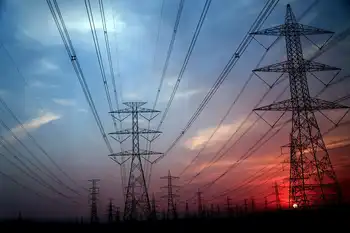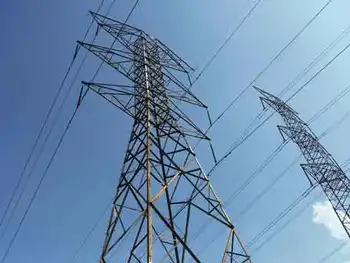Power WorkersÂ’ Union favours AECL restructuring
By Canada News Wire
NFPA 70e Training - Arc Flash
Our customized live online or in‑person group training can be delivered to your staff at your location.

- Live Online
- 6 hours Instructor-led
- Group Training Available
"Canada's world class CANDU nuclear technology creates tens of thousands of jobs and billions in economic spin-offs as well as supporting research and development at Canadian universities," said the union's President Don MacKinnon "Whatever the final decision, it must secure maximum employment and revenue for Canadians."
Restructuring AECL could provide an improved focus on Canada's vital medical radio-isotope production as well as nuclear electricity generation.
"CANDU technology is up against some tough global competition and that there is a lot at stake. Strengthening AECL will ensure benefits for Canadian workers and an expanded role as a global nuclear technology leader," MacKinnon added.
Ontario is the centre of Canada's $5 billion a year nuclear industry and hosts more than 100 manufacturing companies in the CANDU supply chain as well as the majority of the industry's 30,000 direct jobs. According to the Canadian Energy Research Institute and the Conference Board of Canada, building additional CANDU reactors here and selling more abroad means hundreds of thousands of new high-skilled, high paying jobs.
For more than 45 years, CANDU reactors have safely generated emission-free, affordable electricity for Canadian homes and businesses. More than 50 per cent of Ontario's electricity is provided by CANDU plants 24 hours a day - 7 days a week. AECL has also successfully built CANDU reactors on time and on budget around the world. Currently, 10 percent of international nuclear generation has been supplied and constructed by AECL.
"Our highly skilled and dedicated CANDU workforce has helped achieve Canada's role as a nuclear technology leader," said MacKinnon. "They have pride in what they have accomplished and look forward to making this technology even better."
New nuclear reactors are being considered for Ontario, New Brunswick, Alberta and Saskatchewan. Even though Ontario's current electricity demand picture is down, due in large part to the recession and the struggling manufacturing sector, Ontario needs to take a longer-term view of the province's future electricity needs, MacKinnon noted.
Demand is expected to increase in the future as the current recession ends; Ontario's population increases; and from the electrification of the transportation sector.
"It takes 10 to 12 years to approve and build new nuclear generation in Ontario," stated MacKinnon. "Ontario can't afford to hang its future competitiveness and energy security on high cost natural gas and electricity imports, intermittent renewables and uncertain conservation outcomes. Ontario and Canada need a solid future for AECL."











